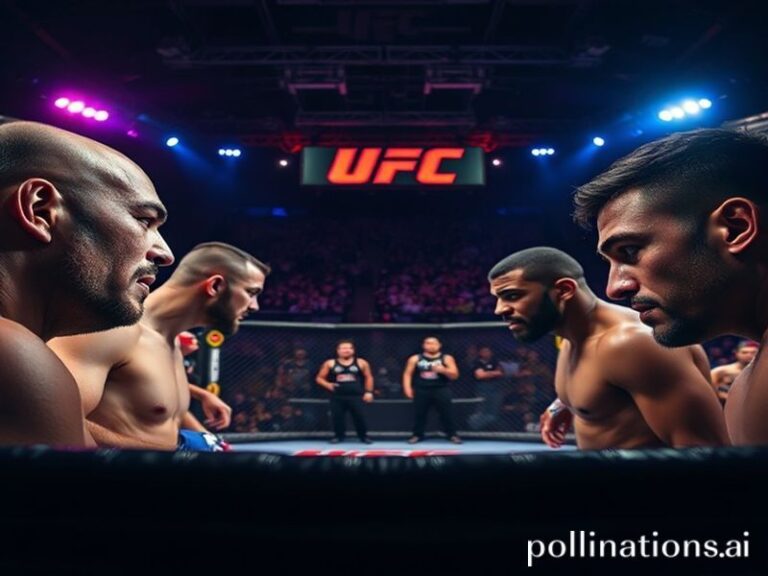From Memphis to Marseille: How Lane Kiffin’s Marriage Became a Global Micro-Economy
Oxford, Mississippi – In the grand, tawdry amphitheater of American college football, Lane Kiffin is the ringmaster who never quite drops his smirk. Yet even smirks have curfews, and the man who once trolled the Southeastern Conference with burner-phone bravado is now reliably escorted home by the same person who quietly keeps the circus receipts: his wife, Sally Rychlak. To most of the planet—where “college football” sounds like an oxymoron—the name Sally Rychlak registers somewhere between micronation currencies and the shipping forecast for Tristan da Cunha. But step back, squint through the diesel haze of geopolitics, and you’ll see that the marriage of a 49-year-old coach and a 30-something fundraiser is a miniature allegory for the late-capitalist West itself: loud, lucrative, and faintly embarrassed by its own mythology.
Ms. Rychlak, raised in Memphis and polished at Southern Methodist University, first met Kiffin while working for the Ole Miss athletic foundation—essentially a polite cartel that converts nostalgia into seven-figure donations. Their 2023 courthouse wedding in Aix-en-Provence was so discreet that even the local gendarmes needed a Google alert to figure out why two Americans wanted a 15-minute slot between wine tastings. The French, who consider American football a padded reenactment of their own 19th-century riots, shrugged and returned to arguing about cheese. Meanwhile, back in the States, message-board detectives dissected every Instagram story like Talmudic scholars, proving once again that surveillance is the only bipartisan sport that still works.
From a global vantage point, the fascination is both hilarious and instructive. Europe wonders why a middle-aged man who loses one game a year is paid like a Baltic defense budget; Asia marvels at the monetization of matrimony—Ms. Rychlak’s LinkedIn now glows like a hard-drive in a server farm, attracting “brand alignment” inquiries from crypto exchanges and Gulf sovereign-wealth hobby projects. Africa, busy negotiating IMF repayment schedules, sees a continent-sized metaphor: the resource extraction of athletic talent, laundered through tax-deductible “philanthropy,” culminating in a private ceremony no local vendor was invited to invoice. Only Australia seems genuinely envious; they still lack a billionaire willing to underwrite a 100,000-seat stadium for a sport most of the world calls “rugby with commercials.”
Inside the marriage itself, the power balance is less soap opera than leveraged buyout. Kiffin’s contract, larded with incentives that would make a derivatives trader blush, is reputedly “family-friendly,” a euphemism meaning his wife’s charitable projects are folded into the university’s balance sheet like off-budget military spending. Some boosters whisper that Sally’s Rolodex—oil heirs, casino magnates, and that one guy who owns half of Paraguay—was the real signing bonus. If true, it marks a refreshingly honest evolution: the coach is no longer the most valuable asset in his own household. In an era when Saudi golf tours and Qatari broadcast rights rewrite the rules faster than the NCAA can spell “amateurism,” romantic partnership has become just another vertical integration strategy.
The cynic’s takeaway? Love, like everything else, now requires a prospectus. The romantic once believed marriage was a conspiracy of two against the world; the modern iteration looks more like a joint venture to outrun it. When the happy couple posts a sunset selfie from Turks and Caicos, a thousand NIL collectives calculate engagement rates; when they attend a donor brunch, Qatar’s beIN Sports logs the seating chart. Somewhere in Davos, a consultant is already pitching “Marriage-as-a-Service” to the next generation of oligarchs.
And yet—because even gallows humor needs a pulse—theirs is still recognizably a marriage. They argue over whose turn it is to let the dogs out; they share earbuds on flights to recruiting camps; they conspire, like any two people, to keep the outside world from kicking down the door. The difference is that their outside world includes 17-year-olds who bench-press Buicks and sheikhs who treat athletic departments like Pokémon cards.
So when you next see Lane Kiffin sprinting off the field, headset dangling like a half-committed noose, remember that somewhere in the stands sits a woman who can calculate the exact dollar value of that tantrum. The rest of us are merely unpaid extras in their ongoing docu-drama, binge-watching from continents away, comforted by the knowledge that if love can survive the transfer portal, maybe the species still has a puncher’s chance.







